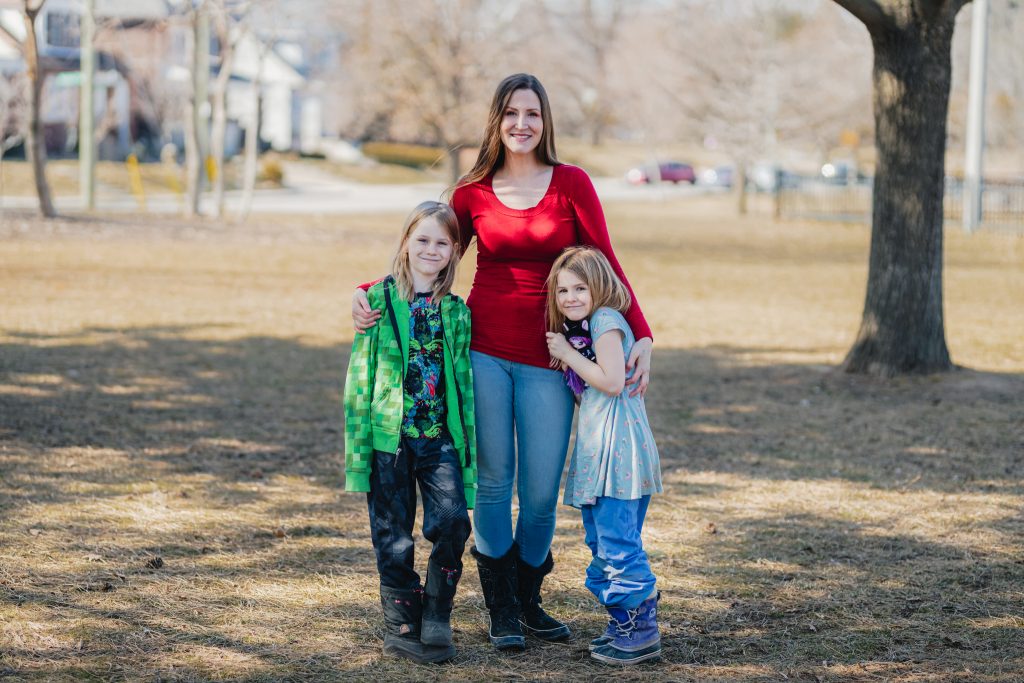
Children with autism and their families test drive Family-Check-Up program
Shondra thinks back to the day her son Gryphon was kicked out of preschool due to his unruly behaviour.
“While I was crying in the hallway, one of the other parents recommended I take Gryphon to a pediatrician, who diagnosed him with autism spectrum disorder (ASD) and referred us to the Ron Joyce Children’s Health Centre (RJCHC) at Hamilton Health Sciences,” says Shondra, who has been connected to the RJCHC ever since.
Gryphon, now eight, and Shondra recently participated in a small Hamilton study looking into whether the American-based Family-Check-Up program could help children and youth with autism and their families. The study is a partnership between the RJCHC and Offord Centre for Child Studies. It involves 20 local families who have children with autism, ages six to 17. Gryphon’s younger sister also has autism but she was too young for the study when it launched.
Family Check-Up
This family-centred intervention program, developed in the United States, focusses on participants’ personal strengths and the social and community networks available to support them. It offers parents simple, practical skills to address the individual challenges they’re facing. The Hamilton study deals specifically with children and youth with ASD and their families.
“It’s so much stress and anxiety.”
“We know that parents of children with ASD have significantly higher rates of stress as well as depression,” says Dr. Terry Bennett, a psychiatrist at the RJCHC and researcher at the Offord Centre.

Dr. Terry Bennett
“Additional challenges such as poverty, parent mental illness or difficulties at school can exacerbate that stress and impact kids profoundly. When families feel supported, the outcomes for children and youth with ASD improve over time.”
Life since COVID-19 has been especially challenging for Shondra and her kids, with after-school activities and support programs cancelled. “It’s so much stress and anxiety,” says Shondra, a single parent. “It’s exhausting.”
Day in the life
The day we spoke to Shondra for this story, she had driven her children to Toronto – the closest centre she could find for a COVID spit test – after a child in Gryphon’s class tested positive. “I tried the nasal swab another time with Gryphon and knew it wouldn’t be an option,” says Shondra. “The nurse got kicked in the throat and Gryphon was bleeding from the nose. So we spent six hours of our day getting the alternative spit test in Toronto.”
Then there was homework once they returned home. “A short assignment that should have taken a couple of minutes amounted to 40 minutes of meltdowns. And those are just two examples from today.”
Test driving the Family Check-Up for ASD
Family Check-Up clinicians based at Hamilton Health Sciences’ McMaster Children’s Hospital work with families in the ASD study.
Parents complete an assessment that includes questionnaires. They are also videotaped interacting with their child. Feedback from the questionnaires and videotaped interactions help identify strengths and areas for improvement in parenting, as well as services that could help at the RJCHC and in the community.
“The experience didn’t feel judgmental.”
HHS works with local community partners to help ensure that programming is available to families regardless of circumstances. “Our hospital is a leader in building the social determinants of health into innovative programs for our patients and their families,” says Bennett. “We want to ensure we support families that have a harder time engaging with the healthcare system. Research shows that families who struggle more can have a difficult time accessing and staying in autism services.”
After completing the program, families are invited to provide feedback. Their input will be used to fine tune the Family Check-Up program specifically for children and youth with ASD and their families. They are also welcome take part in short parenting sessions based on their needs.
“The experience didn’t feel judgmental,” says Shondra. “It affirmed to me that I was doing a lot of things right, but there were also some areas where I could make improvements.”
Next steps
The study is expected to wrap up by summer. Bennett’s team will take participants’ feedback and decide whether the program needs to be further adapted for ASD families. “Down the road we’re hoping to do a larger, multi-site, randomized control trial of the program,” says Bennett. “But we’re starting with parent feedback.”
The Offord Centre and RJCHC recently completed a larger study on the Family Check-Up program called ‘Making the Race Fair,’ involving 207 families with children ages two to four. This study examined how early parenting support can benefit children later in life using a family check-up intervention. It’s the first study in Canada to look at the effectiveness of the Family Check-Up program. The study is now complete, and results will be released in the coming months.
